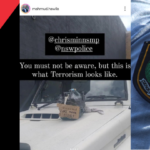What is the Role of Banks and Telecommunications when it comes to Policing?

Traditionally, policing was done by people in uniform – and the image of the navy copper doing his ‘beat’ or out arresting criminals is still a prominent one when we think of police.
Today there is an increasing trend towards third parties being enlisted to help with policing, which was never a method of conservative crime control.
This had led to increasing police access to information based on your phone, computer, travel and banking.
Data retention
ASIO and the Federal Police want records kept by phone and Internet service providers on their customers for up to two years.
Interest in data retention has been on the government agenda since 2010.
The retention of private information by companies who provide services is argued to be necessary to provide information to ASIO about terrorism activities.
Britain recently decided to go ahead with laws that force companies to store the time and destination of phone calls, text messages, emails and Skype calls for a year.
Under Britain’s data retention laws, the mere fact that a communication is recorded is enough to give law enforcement agencies access, rather than any ‘suspiciousness’ of the communication’s source or content.
The government will not be pursuing these proposals, however proposed new laws will give ASIO increased powers and access to both suspicious and completely innocuous data.
One of the proposals is an increase of search powers under a warrant.
This proposal would mean that instead of needing a new warrant for every separate computer or device, ASIO could search any computer or device belonging to or associated with a suspect, including those linked via a network.
Opal cards
Opal cards are another way that police have increasing access to our information without so much as the need for a warrant.
The cards have been touted as a new and convenient way to pay for public transport but there has not been so much publicity about the negative implications of increasing police access to our personal information and whereabouts.
We actually have a whole blog about threats to privacy and the opal card.
Banks
Banks are responsible for reporting to the government under some circumstances.
According to the Anti-Money Laundering and Counter-Terrorism Financing Act 2006, banks are classed as a ‘reporting entity’ and must report:
- International funds transfer instructions
- Threshold transactions
- Suspicious matters
This first category means that any organisation classed as a reporting entity that sends or receives instructions to transfer funds or property to or from another country, they must report within 10 business days to Australian Transaction Reports and Analysis Centre (AUSTRAC).
The second point, ‘threshold transactions’ requires a reporting entity to tell AUSTRAC of any transactions involving the transfer of currency of AU$10,000 or more.
Suspicious matters – suspicion arising at any time when dealing with a customer again gives rise to the reporting duty of banks or other reporting entities.
Suspicious matters may point to offences such as money laundering, operating under a false identity or an offence under a Commonwealth, State or Territory law.
Reporting entities have three business days to report, unless the suspicion is raised in relation to terrorist offences, where they must report within 24 hours.
What are the larger implications of third parties being drafted into police work?
You may have noticed that terrorism springs up quite frequently as a defence for why these obligations of third parties are necessary.
Are these laws necessary to police terrorism, or are they being used for other purposes?
If we look at phone tapping, for example, counter-terrorism was used as a reason for the introduction of the Surveillance Devices Act.
However, the latest Ombudsman report showed that warrants used for terrorism offences were only a small portion of total warrants – they fitted into the ‘other’ category, which altogether made up just 3% of the use of surveillance devices, leading to the conclusion that the devices were overwhelmingly being used for other purposes.
The argument that only those with something to hide need to be worried about increased surveillance and reporting is facetious and misses the point.
Obviously, privacy concerns are raised as well as issues of regulation.
With no Bill of Rights or constitutional protection of privacy, laws that impinge are an increasing concern.






